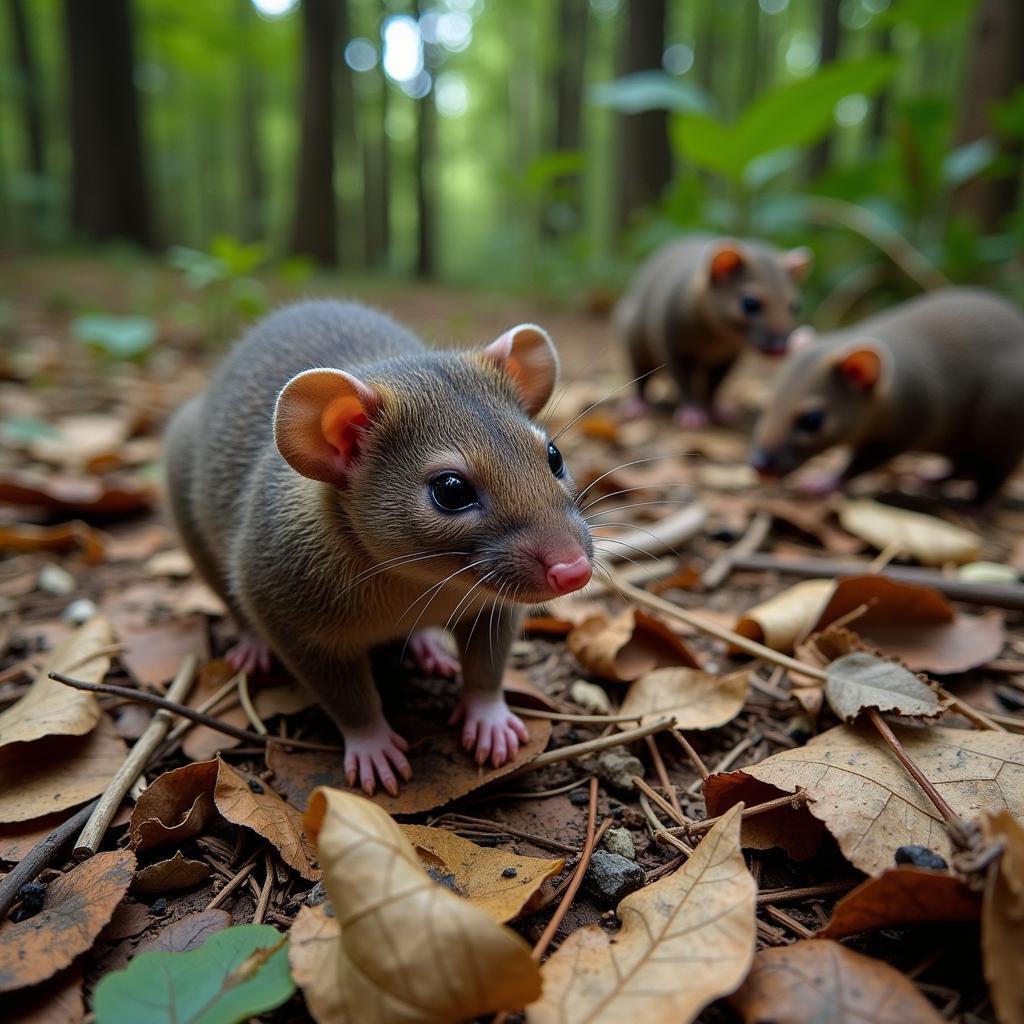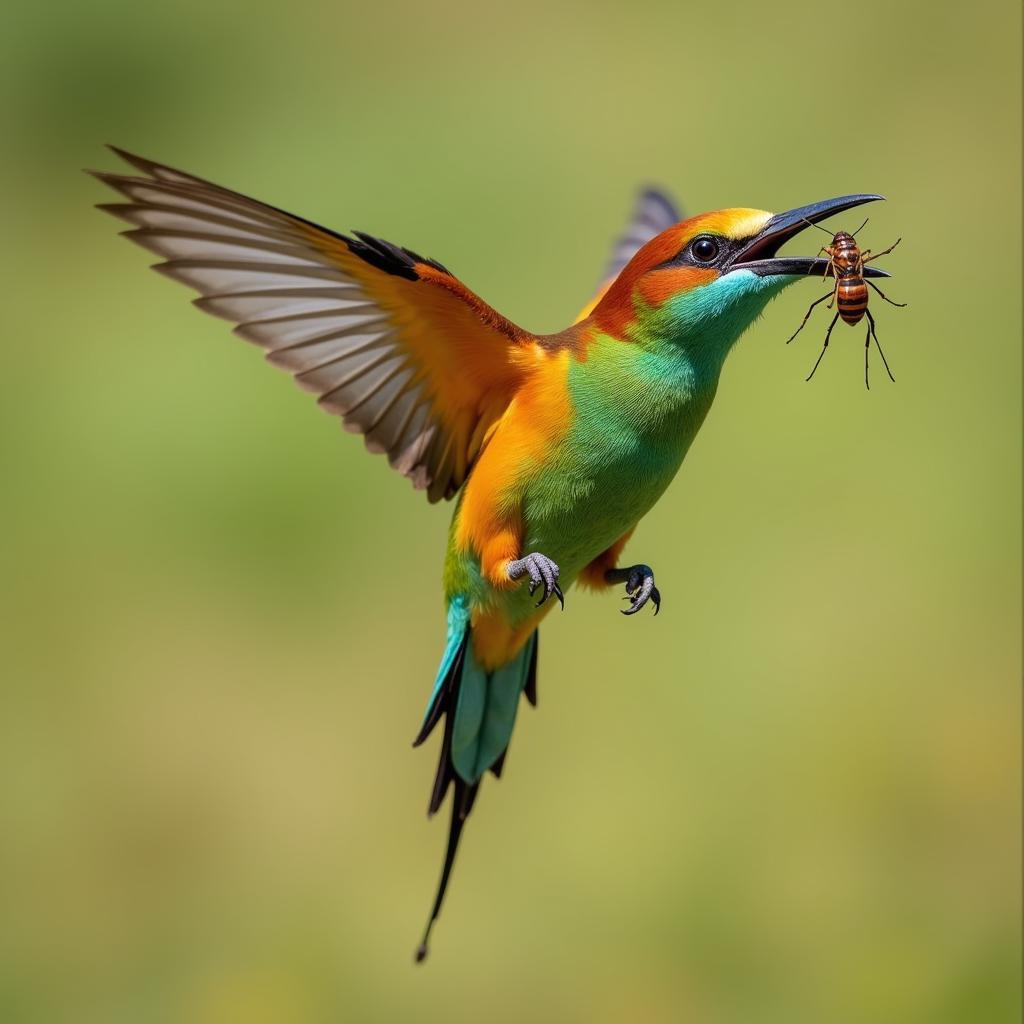Exploring African Insectivores: A Diverse and Vital Group
African Insectivores are a fascinating group of animals, playing a crucial role in the continent’s diverse ecosystems. These insect-eating creatures have adapted to various habitats, from lush rainforests to arid deserts, showcasing remarkable evolutionary ingenuity. This article delves into the world of these often-overlooked yet essential members of the African fauna.
There are many different types of insectivores found across Africa. From the tiny, shrew-like sengis to the powerful aardvark, these animals demonstrate a wide range of adaptations and behaviors all centered around their shared diet of insects. Understanding their ecological importance and the threats they face is vital for conservation efforts. Let’s explore some of the most prominent examples and delve into their fascinating lives.
The Aardvark: A Powerful Insectivore
The aardvark, meaning “earth pig” in Afrikaans, is a unique African mammal specialized in consuming ants and termites. Its powerful claws and long, sticky tongue make it a formidable predator in the insect world. Aardvarks play a crucial role in controlling insect populations and aerating the soil through their digging activities.
Small but Mighty: Sengis and Other Tiny Insectivores
Sengis, also known as elephant shrews, are small, mouse-like creatures with elongated snouts. Despite their diminutive size, they are voracious insectivores, consuming a significant amount of insects relative to their body weight. Other small insectivores, like hedgehogs and shrews, also contribute to insect control, particularly in forest and grassland ecosystems. They often occupy niches that other insectivores don’t, showcasing the diversity within this group. The aardwolf African mammals also plays a role in this delicate ecosystem.
 Sengi foraging for insects in leaf litter
Sengi foraging for insects in leaf litter
Bats: The Aerial Insectivores of Africa
Several bat species across Africa specialize in catching insects mid-flight. Their echolocation abilities allow them to navigate and hunt in darkness, consuming vast quantities of flying insects, including mosquitoes and moths. These nocturnal hunters play a vital role in regulating insect populations and contributing to the health of various ecosystems. You can find some examples of African animals that eat bugs.
What are some common African insectivores?
Some common African insectivores include the aardvark, pangolins, sengis, hedgehogs, shrews, and various bat species. Each plays a unique role in the ecosystem.
Threats to African Insectivores
Like many other animals, African insectivores face numerous threats, including habitat loss, pesticide use, and climate change. Protecting their habitats and promoting sustainable practices are crucial for their long-term survival. Certain species like the pangolin are also threatened by poaching. The decline of insect populations, primarily due to pesticide use and habitat destruction, poses a significant threat to insectivorous animals. Conservation efforts must address these interconnected issues to protect these vital creatures. Check out the African house gecko and other African gecko species.
 African bee-eater catching an insect mid-flight(https://omenkamag.com/african-bee-eater/) species.]
African bee-eater catching an insect mid-flight(https://omenkamag.com/african-bee-eater/) species.]
Conclusion
African insectivores are a diverse and vital part of the continent’s ecological tapestry. From the smallest shrew to the powerful aardvark, these insect-eating animals contribute significantly to maintaining the balance of African ecosystems. Understanding and protecting these fascinating creatures is essential for the health and well-being of the entire continent.
FAQ
-
What is an insectivore? An insectivore is an animal that primarily eats insects.
-
What is the largest insectivore in Africa? The aardvark is the largest insectivore in Africa.
-
Why are insectivores important? Insectivores help control insect populations and maintain ecological balance.
-
What are some threats to African insectivores? Habitat loss, pesticide use, and climate change are major threats.
-
How can we protect African insectivores? Supporting conservation efforts, reducing pesticide use, and protecting habitats are crucial for their survival.
-
What is a sengi? A sengi, also known as an elephant shrew, is a small, mouse-like insectivore found in Africa.
-
Do all bats eat insects? No, not all bats eat insects. Some species feed on fruit, nectar, or even small vertebrates.
Need Help?
Contact us for any assistance regarding African wildlife and conservation efforts.
Phone: +255768904061
Email: kaka.mag@gmail.com
Address: Mbarali DC Mawindi, Kangaga, Tanzania.
We have a 24/7 customer service team.